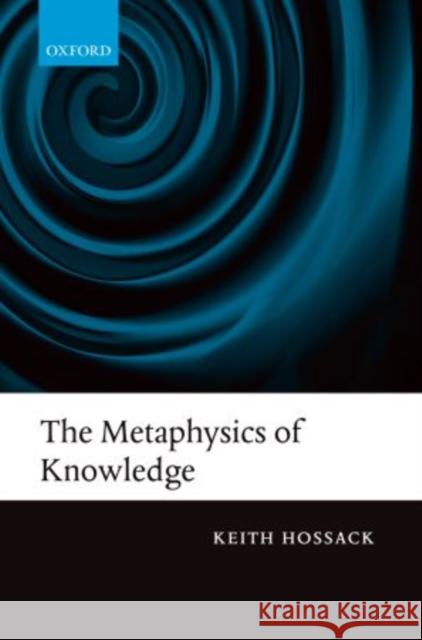The Metaphysics of Knowledge » książka
The Metaphysics of Knowledge
ISBN-13: 9780199645954 / Angielski / Miękka / 2012 / 328 str.
The Metaphysics of Knowledge
ISBN-13: 9780199645954 / Angielski / Miękka / 2012 / 328 str.
(netto: 208,82 VAT: 5%)
Najniższa cena z 30 dni: 210,56
ok. 16-18 dni roboczych.
Darmowa dostawa!
The Metaphysics of Knowledge presents the thesis that knowledge is an absolutely fundamental relation, with an indispensable role to play in metaphysics, philosophical logic, and philosophy of mind and language.
Knowledge has been generally assumed to be a propositional attitude like belief. But Keith Hossack argues that knowledge is not a relation to a content; rather, it a relation to a fact. This point of view allows us to explain many of the concepts of philosophical logic in terms of knowledge. Hossack provides a theory of facts as structured combinations of particulars and universals, and presents a theory of content as the property of a mental act that determines its value for getting knowledge. He also defends a theory of representation in which the conceptual structure of a content is taken to picture the fact it represents. This permits definitions to be given of reference, truth, and necessity in terms of knowledge.
Turning to the metaphysics of mind and language, Hossack argues that a conscious state is one that is identical with knowledge of its own occurrence. This allows us to characterise subjectivity, and, by illuminating the "I"-concept, allows us to gain a better understanding of the concept of a person. Language is then explained in terms of knowledge, as a device used by a community of persons for exchanging knowledge by testimony. The Metaphysics of Knowledge concludes that knowledge is too fundamental to be constituted by something else, such as one's functional or physical state; other things may cause knowledge, but do not constitute it.











